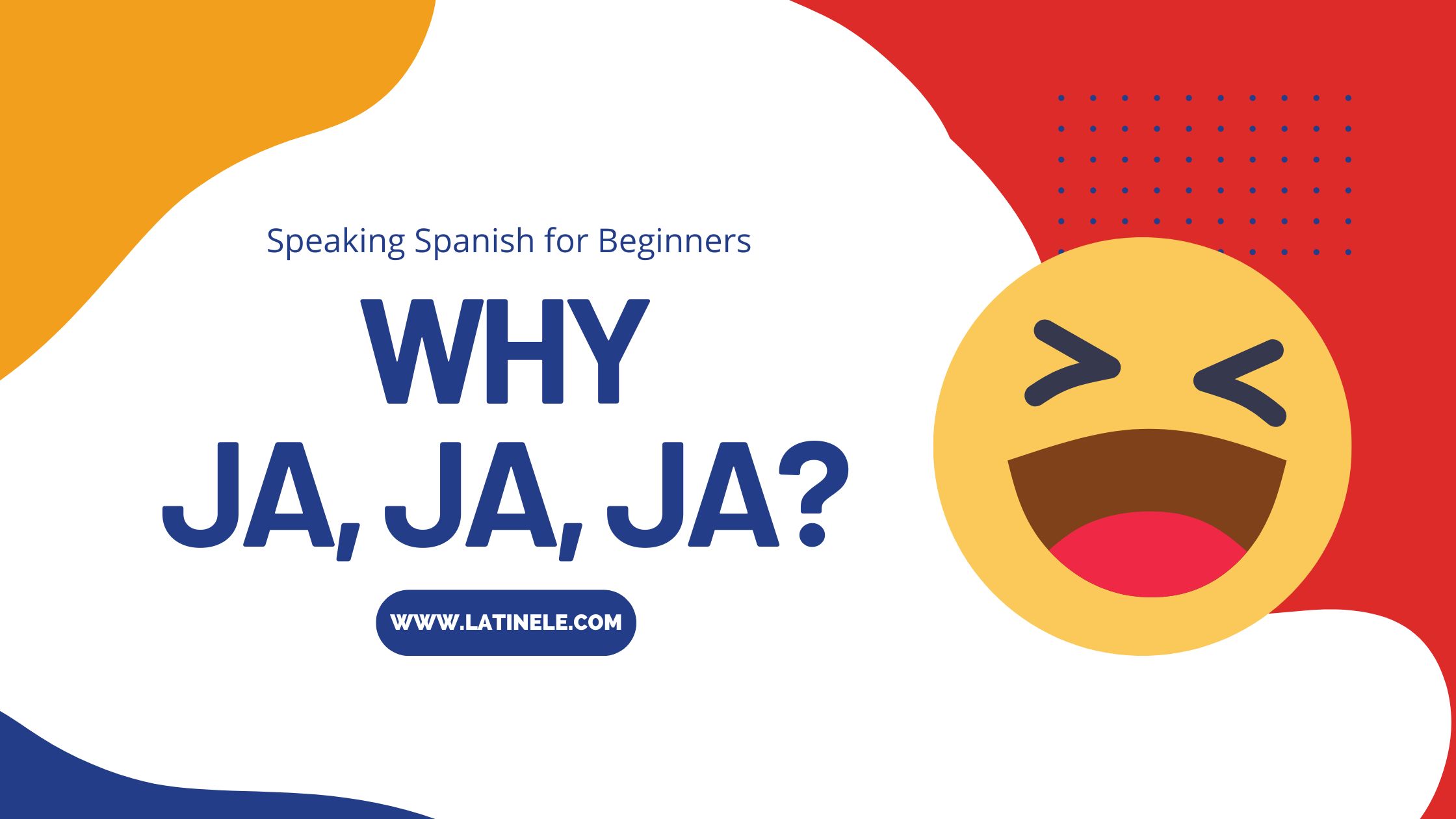When you see a meme “en español” on social media, it’s common to see the word “jajaja” in the comments, not “hahaha”.
I know what you’re thinking, my “gringo” amigo.
When you see “j,” you think of the sound of the letter as in “job.” So you picture “jajaja” being pronounced with that sound.
But far from it!
(Also, that would be an awkward laugh)
Let’s explore why Spanish speakers write the sound of laughs with “j” in this episode of Speaking Spanish for Beginners.
Join our FREE 5-Day Spanish Course!

Ready to start learning Spanish but not sure where to begin?
Subscribe to Latin ELE’s newsletter and get access to Spanish Kickstart—a 5-day course with videos, study guides, and daily tips to help you start strong.
Unsubscribe anytime. No hard feelings
Laughter in Spanish
For starters, the Spanish word for “laughter” is “risa,” a feminine noun. And the verb “to laugh” is “reírse.”
“La risa” is represented as “jajaja.”
Or more correctly, as the rules suggest, it’s separated with commas: ja, ja, ja
(A rule almost nobody follows)
Why with “j”?
The sound of the letter “j” (jota) in Spanish sounds like the “h” as in “house.”
(You can hear the pronunciation in the episode above)
That’s why English and Spanish write laughter with a different letter.
Other forms of “hahaha”
While “jajaja” is the standard representation of laughter in Spanish, there are a few other forms of laughter that have a different meaning.
Let’s look into them:
Jijiji: This one represents a mischievous laugh. When somebody pranks someone, you might see this written out in the chat.
Example: ¡Te encontré! Jijiji, no te enojes, solo era una broma.
So when your “amigo” writes this, they are up to something…
Jojojo: This is the equivalent of “hohoho,” Santa’s laugh. It’s very common to see it when Christmas approaches. It’s also used when somebody gives a present but wants to convey the idea it was actually Santa.
Example: ¡Mira lo que te trajo Santa! Jojojo, espero que te guste.
So, there you have it! Jaja
The next time you see these words from Spanish speakers, on social media or text messages, don’t be confused.
It’s not that they made a mistake while typing their message. It’s just that we represent laughter differently.
And if you need additional material to learn the Spanish language, our podcast, Speaking Spanish for Beginners, is packed with fun and easy-to-follow episodes to start your language adventure on the right foot.
¡Chao!



Marco Fierro — Spanish Beginners Cult Leader
¡Hola! I’m an enthusiastic Spanish teacher passionate about making my language accessible to YOU.
When I’m not teaching, I love traveling and rocking out on my electric guitar.
Let’s have fun learning ESPAÑOL together. ¡Vamos!



